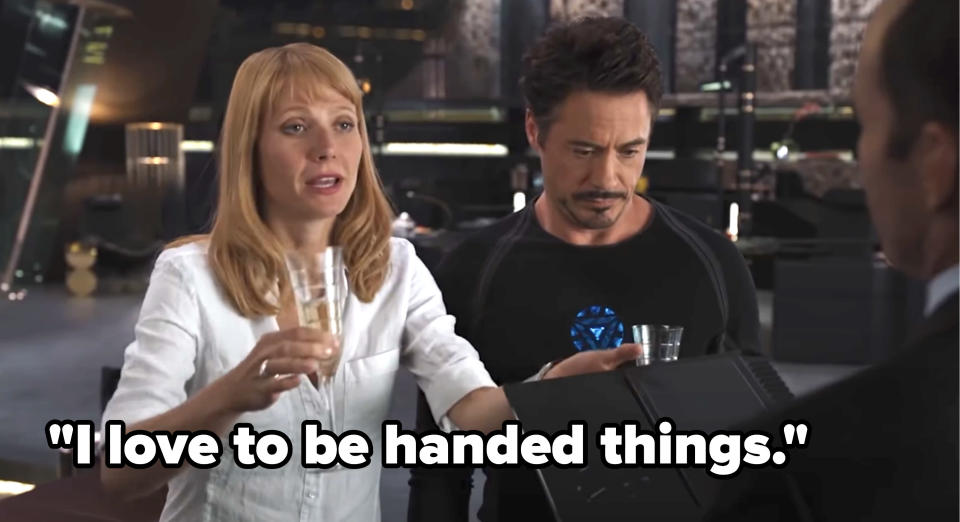29 Fascinating Psychological Tricks That Actually Work
Sometimes, it might seem like people are going through life with cheat codes — like there are some life hacks the rest of us don't know about. Especially when it comes to dealing with other people.
Fox
And honestly, there are a lot of tips and tricks you can use to your advantage. So recently, when Reddit user u/Aggravating_Taste821 asked about dark psychological tricks that actually work, I decided to take note — especially because most of the tricks weren't actually dark, but really just useful.
T&K Creatives / YouTube
Here are some of the most interesting tricks — along with the few actually messed up ones, so you can catch when people are using them on you and resist!!!
Paramount Domestic Television
1."Nod your head up and down slightly when you want someone to agree with what you are saying."
"Back in my bartender days, I always taught the new servers this trick. If you want your table to stick around for dessert, subtly nod your head yes while you’re asking them if they want dessert. If you need to turn and burn the table, shake your head no when you ask them. It’s absolutely unnerving how effective it is."
2."When someone's being rude to you, stay completely silent and stare at them. It'll make them feel incredibly uncomfortable and they'll usually act civilly after a few moments."
"**DISCLAIMER**Do not do this to people who are exhibiting aggressive behaviour, and/or whilst in an unsafe non-public environment. ... This is a tactic meant to be used on otherwise mature adults in safe environments."
"[I] did this all the time working at a pharmacy during COVID. it sorta forces them to be alone with their thoughts for a second, and they usually realize they’re being a jackass. I’ve had people go from yelling at me to 'thank you, I’m sorry, have a great day.' It’s wild."
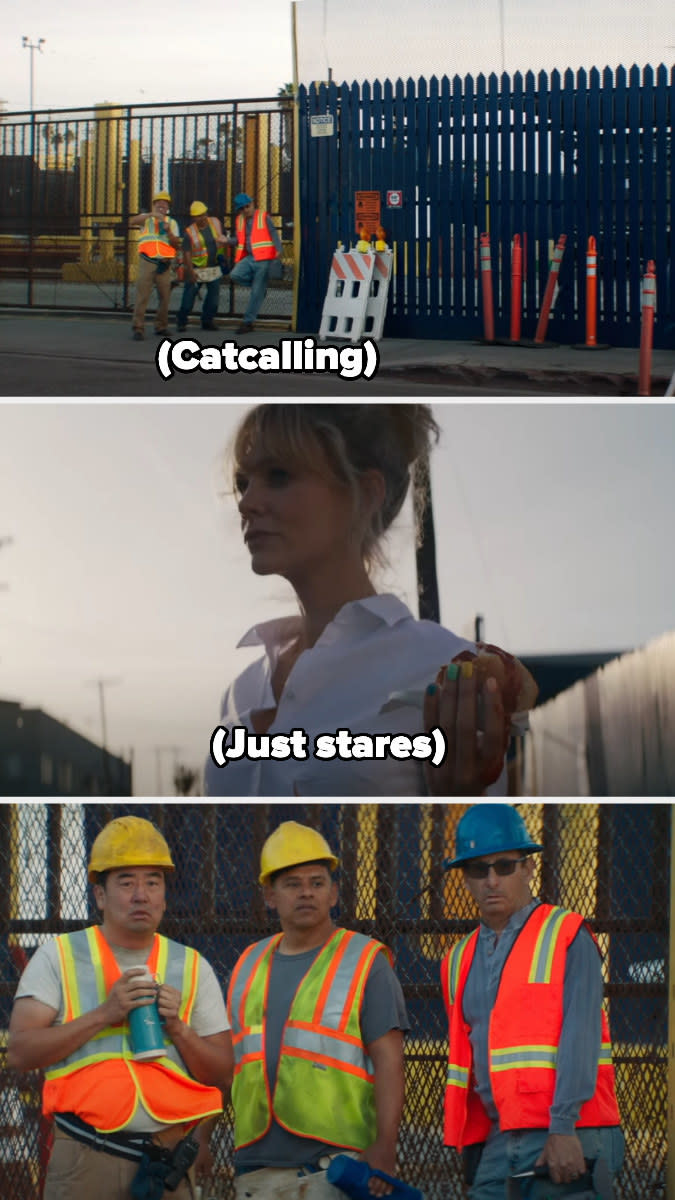
3.Similarly, "I never went that far, but I lowered my voice down to a whisper so they couldn't hear me over their own BS. Generally, after a few moments, they adjust their volume to match yours subconsciously and calm down. It's a pretty great trick with my kid if she's not too worked up already."
4.Silence also works if you want someone to fess up to something: "If you want to know something, ask the question then wait. People want to fill the silence and will talk and talk."
5.Or if you want them to come back with a better offer: "Waiting several seconds or up to minute to say something after someone has given you an offer ... will make what you say next highly likely to be agreed with. Most people hate uncomfortable silence — especially sales people."
6."Asking people to explain what they mean when they're being offensive is extremely effective, especially if there's an audience around. *Someone makes slightly sexist comment* 'Could you please explain what you mean?' That someone is feeling a mountain of awkwardness and shame fall on them."
"'Could you repeat that, please?' People take that extra beat and realize what they're saying. 'I don't understand, can you explain the joke to me?' works really well with offensive humor."
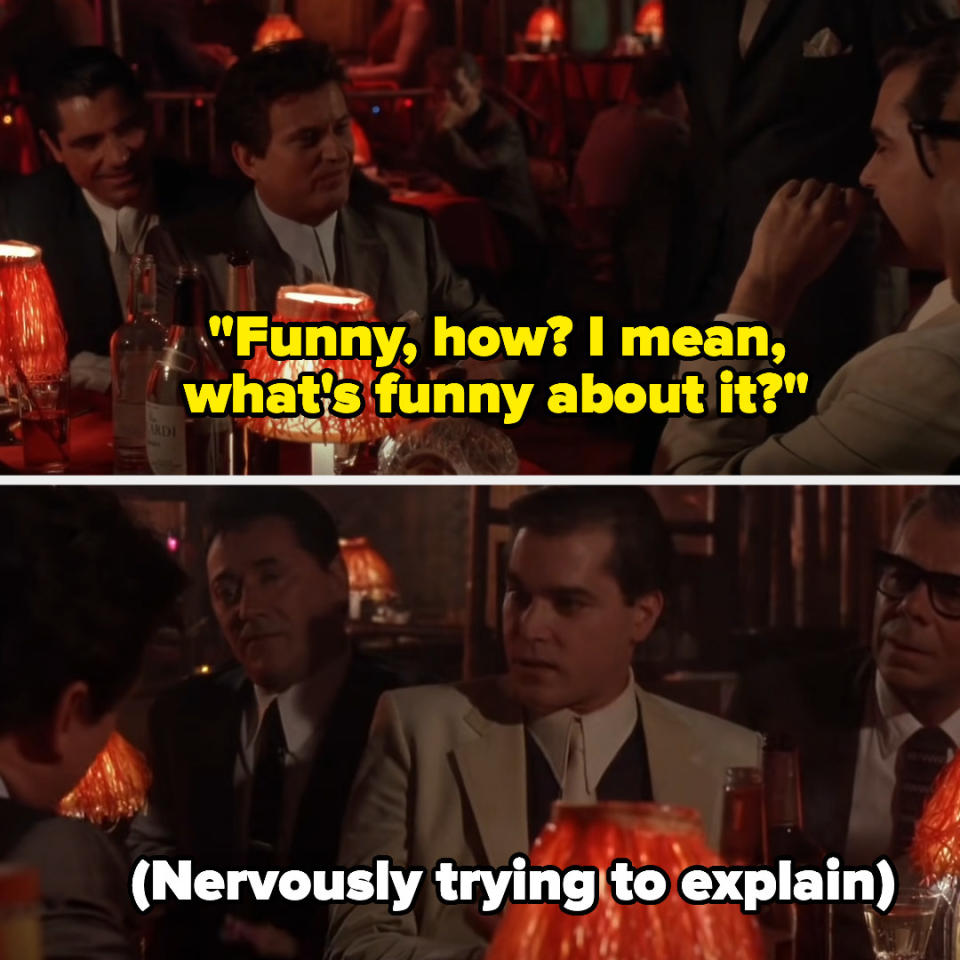
7."If someone is bothering you at your desk too often, continue the conversation but get up and walk them back to their desk. Had a boss who was a guru at this. You'd be back at your desk wondering how the fuck you got there."
"I do this to my students when I really need them to sit down and just do their work. It sometimes takes me a couple tries depending on the age. I also pull their chair out for them and that usually seems to work."
"I have a coworker who annoys the shit out of me by taking up my time talking. I’m a welder and I fit parts for other welders to finish so there are people waiting on me to do my job so any time spent talking slows everyone down.
When he starts talking to me while I’m busy, I ask him a question then hand him some trash like an empty soda can or a print or something. Then I start walking back to his work area. When we get there and walk in, as soon as he takes a breath or pauses I say, 'Oh hey let me throw that out for you,' take the trash back, and walk out of his area. He never follows and he thinks I’m super helpful and friendly."
8.If you're sick of people (especially coworkers) prying into your personal life..."People love talking about themselves. Ask questions about their personal lives. Act interested in everything they say. I've carried on entire working relationships with people who couldn't tell you anything about me beyond my physical appearance or incorrectly assumed that I had their exact same interests and opinions. After you get to that point, they're not really sharing information with as stranger so much as with a psychological extension of themselves."
9."If someone doesn't want to give you specific information, like tuition costs, or hours expected, give them an example that's completely unreasonable. They will usually immediately give you an exact number and feel embarrassed for pretending not to know."
"Example: Me: How much does your C++ course cost?
Them: It really depends on what your goals are.
Me: Don't you have a beginner's course? Can you give me a price range?
Them: We can work with you to fit your individual needs.
Me: Okay, fine. So is it, like, $10 for access to all your courses, or...
Them: Oh, no. We have a subscription for $99 a month, it you can buy the beginner's course for $120.
Not useful very often, but it works every time."
10."In a competitive environment, if you notice that your opponent is a beginner or showing signs of anxiety, ask them 'Are you nervous?' while trying to act as nonchalant as possible (I'll even yawn if I can). This always gets in people's heads in Street Fighter if they aren't mentally strong to begin with."

11."If you make a favor seem bigger than it is before asking it, the person on the receiving end is much more likely to help."
"'Babe, can you do me the biggest favor ever? Can you turn off the light when you come to bed?' He would have done it anyway, but now he feels like a hero."
12."Related: Ben Franklin suggested that if someone seemed cold to you, ask them a small favor. (I think he mentioned borrowing a book?) After you return the book and were sufficiently appreciative, that person would likely be less cold in the future."
"The brain doesn't like cognitive dissonance. So if I do you a favor, Some part of them is likely to say they did the favor because they liked you."
"Yes, also you gave them the gift of being able to feel useful and magnanimous, which humans typically enjoy."
13.Speaking of favors..."Whenever I want to help someone with something but I know their pride gets in the way or they don't want to impose, I ask them for a favor first even if I don't really need it. Examples would be like asking a peer how they arrived at a solution for xyz, and then 'repaying' the favor by going, 'You wanna see something cool I learned recently?' and showing them how to do something more efficiently/correctly. Or when you know your parents' heater is broken but they insist on calling a repairman instead of troubling you, and suddenly you need to borrow sugar but while you're over there, might as well check out that heater. People like to feel helpful and I like to give unsolicited advice, it works out."
14."Change the perspective from I to we and people will automatically align themselves with you."
"I'm a teacher and this is how I get my students to go along with completing tasks they don't necessarily find fun. For example, 'Okay, it's home time, we need to clean up the class,' or 'We need to complete this section of reading before we can move on to our activity.' Make it always seem like a team effort."
Although be careful not to use this too much..."As a boss, this is dangerous, because while it's effective in the short-term, people pretty quickly pick up that you say 'why don't WE do this' to mean 'why don't YOU do this.' Better to be straightforward about the project requirements and how much you're willing to budge on your preferred solution."
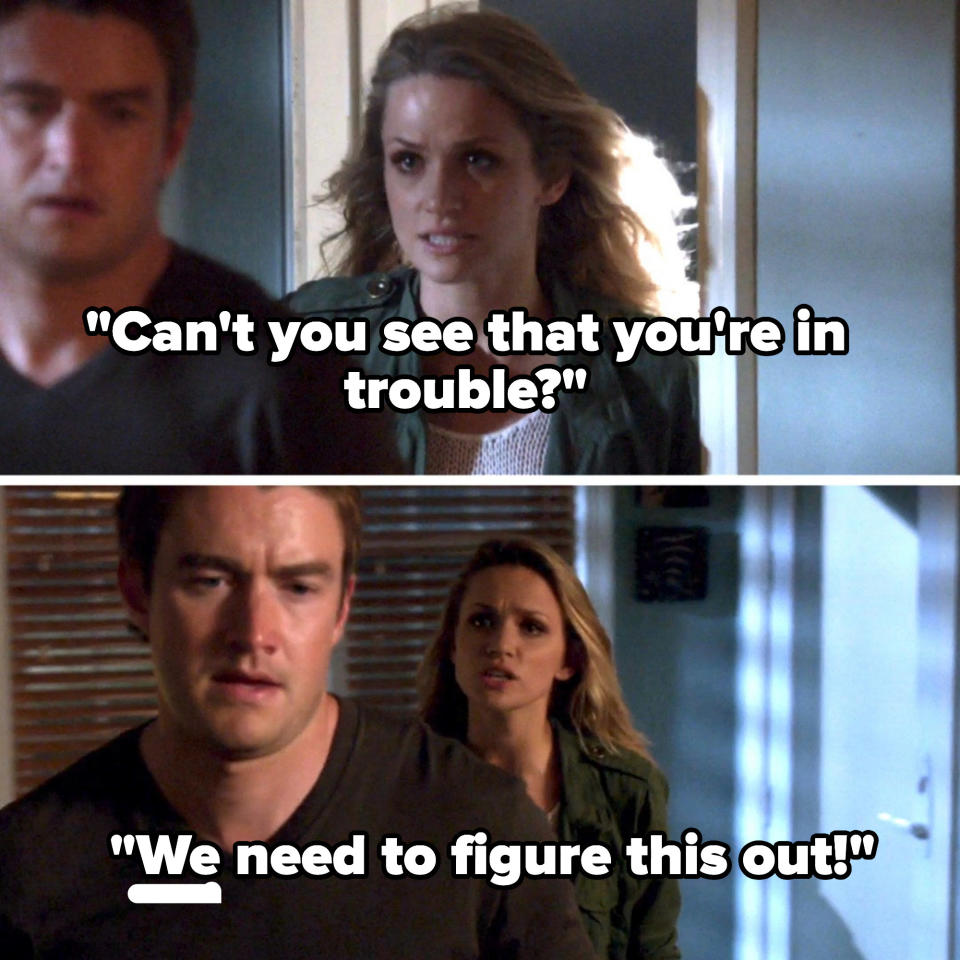
15.Mirroring is a great way to make someone feel more comfortable with you: "Mirroring is wild; it’s so obvious to a third person observer whose looking for signs of mirroring, but the person being mirrored largely has little awareness cause it’s mostly subconscious and works subtly when you’re the subject cause you’re also being distracted by the content of the conversation."
"Like when I’m onboarding at work, I take the noob’s energy, my energy, and split the difference. Slowly adjust the energy as needed. Chill calmness undercurrent throughout the entire interaction cause I’m not generally bubbly to begin with. You may notice slight adjustments in the way I speak — more chill, more expressive, more critical, whatever is my version of what they’re doing. I start wherever they are and slowly bring it to a 'guards down' place by giving them an honest 'lowkey do whatever you want'-vibes rundown of the place. Then start asking gentle questions — they open up about their biggest worries, which I can now alleviate, making them even more comfortable and ingratiated. Once they get settled into the role, I disappear until they need my help cause I enjoy solitude."
"The thing is, people do this all the time anyhow. It’s just one of the many ways we communicate information about ourselves to others without realizing we do. This says, 'I’m in your group/on your side/agree with you.' It shows solidarity. So if you want to make someone feel comfortable with you and feel like they like you, you just do it purposefully."
16.You can also subtly guide their mood and behavior by starting out mirroring (until they're mirroring you), and then adjusting your tone/energy: "I use this technique every day with my patients, especially the ones who are initially distracted when we get started because they just dealt with traffic and finding parking in the city to get to their appointment. It takes only a few minutes and works incredibly well to get everyone on the same page. ... You do as they do, not as a copycat, but in a similar way. Then when things feel comfortable, you can start to take deeper, slower breaths, transition into a more relaxed sitting position, and they usually follow your lead."
"Over time you develop the skills to automatically notice how the other person is carrying themselves, their breathing rate, what they are doing with their hands, etc, and you follow that tone, that body positioning, that breathing rate. But just at first, then you take the lead and make a deliberate change to a more relaxed position, they almost always follow you. Or you can continue to subtly mirror them. It usually results in them feeling more connected to you, like you 'get it.'”
"For those who work over the phone it can be incredibly effective as well. I work in insurance claims. I very, very rarely have people get upset with me. Even when giving bad news. To the point I’ve had people who were upset with me and yelled at me call back to apologize. Multiple times.
If you mirror their tone from the start, when they start getting angry or upset you can bring them with you. You slow your voice. You drop your volume. If you go with them? They’ll keep getting more and more upset."
17."Humans have predictable patterns when choosing stuff at 'random.' If you ask 100 People to pick a random number between 1 and 10, a great deal of people choose 3 or 7. Even numbers, highest/lowest (1 and 10) and the middle number (5) doesn't 'feel random enough.' So when I play board games like Catan or card games where the others have to pick a random card out of my hand, I always put my most valuable card on either side, not in the middle since the middle 'feels' more random."
18."If someone is incorrect (like you know 100% they are) but the correction would have little or no bearing on the conversation, argument, etc., just keep it to yourself. It's not worth embarrassing or belittling them and halting the conversation."
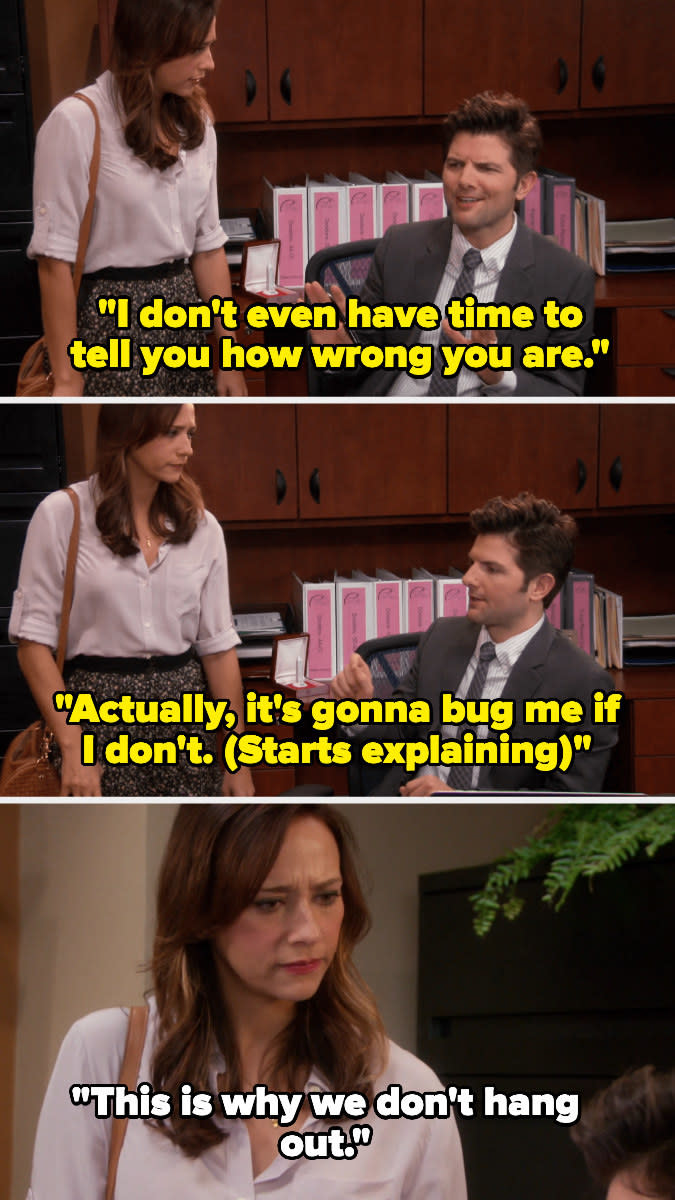
19."It's not really dark but every mistake I make at work I go out of my way to admitting to. For some reason that makes me more trustworthy."
"I do the same, and also go out of my way to sing the praises of anyone thats helped me. Makes people want to work with you and why not? That's who I want to work with."
20."If you want to extract agreement from someone you know reasonably well, begin the conversation by talking about occasions in the past when you have cooperated to achieve a common goal. One or two examples is enough. This primes them to go along with your current proposal."
21."People will be more favorable to your idea if they think it's THEIR idea."
"Management 101, always used to use this. If you wanted something done a certain way suggest something very close but not quite right. Let them fill in the gaps and do the 'oh yeah but maybe like this instead?' Keep discussing until they land on what you originally wanted, then say, 'oh that's a great idea mate can you do it like that for me?'"
22."Ask the question 'Is there anything you need to tell me?' And not say anything else or just leave the room. Works on kids and adults."
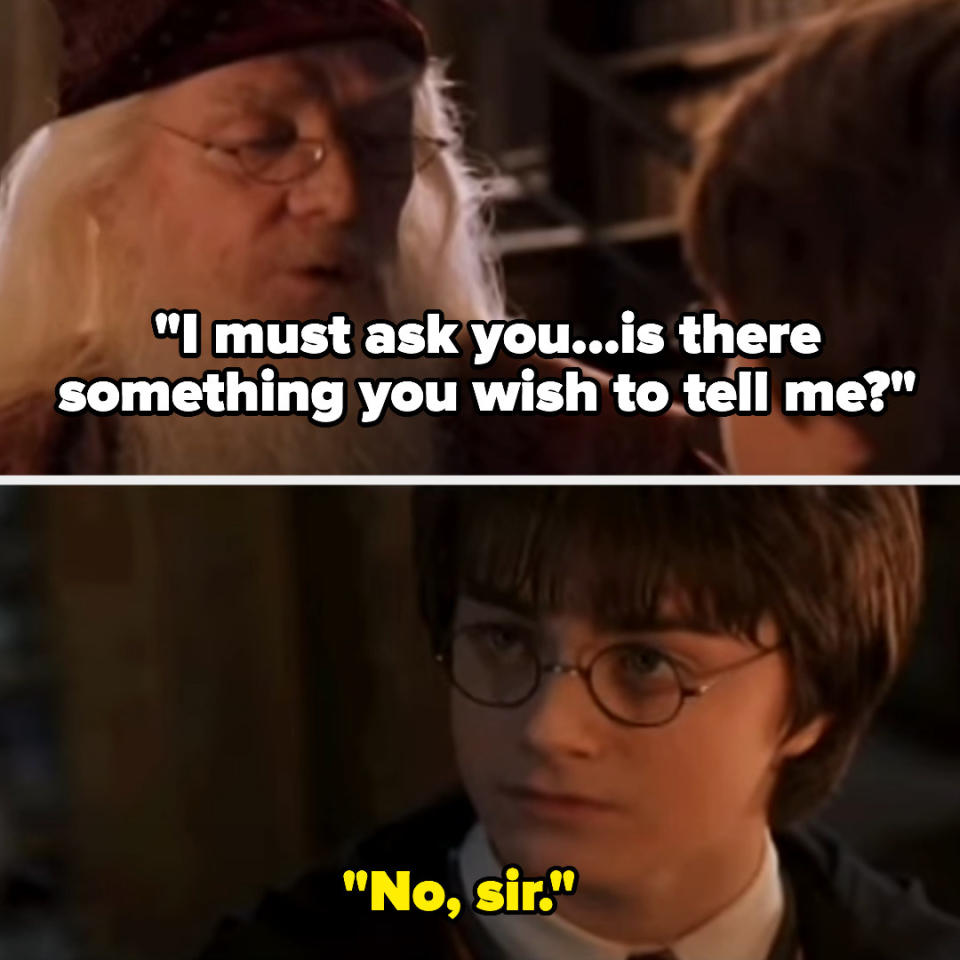
23."The easiest way to tell a lie is to let the person you’re lying to come to their own conclusion of the lie, and then agree with that conclusion. Another thing you could do to easily decrease the chance of you getting caught in a lie is to just not lie, so that when you do lie, it’s presumed to be a truth."
24."Use phrases like 'Thank you for your patience' Instead of apologizing ('sorry, I'll fix it later'). [It] removes the blame from you and makes the other person feel better."
25."When walking in a crowded area, look where you’re going and not at the other people. They will naturally move out of your line of sight making it quicker to move around."
"Also putting your hand out in front of you as if pointing at something — people move."
"If you’re going on a second or third date try to do something scary like a haunted house or thrill seeking like a roller coaster or climbing activity or something. Your date will confuse nerves and excitement with attraction for you. Bonus points if you’re not scared or comfort them through it; they’ll be all the more attracted to you."

26."The illusion of choice is a helpful trick we learned in sales. If you ask someone 'when can we come for x?,' they’re more likely to say they’re not available than if you ask, 'oh what time works better for us to do x, morning or evening?' Works well in other places too because it gives the the person on the other end a feeling of autonomy while at the same time you’re getting what you want."
More broadly: "The wording of the questions often influences the answers. For example, to the question 'how fast were the cars going when they crashed,' people give, on average, an estimated speed that is faster than when the question is formulated as, 'how fast were the cars going when they collided.'”
27."It's wild just how much people are open to suggestion. When you figure out these little cues, you can pretty much make anybody do whatever you want."
"I remember the move I was taught [as a car salesperson] was get them in the car to go for a test drive. Have them pull up to the front door, and then get out of the car and just walk inside matter of factly and sit at the table. They'll follow you in without question.
Then you say, 'I'm going to go find out how much it's going to cost for you to take this car home today.' Very few protest, and usually it can be done anyway.
Then you bring them the paper, tell them the terms, and say, 'so go ahead and sign right here that if we can make this deal happen you'll buy this car right now.' Hold the pen out, nod your head, and don't say a fucking word until they do. Sometimes they'll say 'I can't afford that.' Then you just say, 'what's the price you could afford? We'll put it on this paper and you sign right here. If we can make it work, you can drive it home today.' Hold the pen out, nod your head, and don't say a fucking word. Once you've got them to put the pen to paper, they've committed to buying a car. It's an easy close after that."
"This works, and can be used against them when negotiating! I once had the finance person (the ACTUAL salesperson/closer) give me the runaround on fees, warranty, financing, etc. I told him 'I agreed to pay $X, and that's what I'll pay.' He fiddled on his computer, tried to say how we're so close, and we can get there if we change this term or that price. I sat silent for 4 minutes, just staring at him, no response. Got my price and terms, signed the paperwork, and drive out without paying the extra $1700 he wanted to charge."
28.Be careful of letting this psychological effect trick you into being miserable: "Sunk cost. Basically any time or effort or money that has already been expended or spent tends to be factored into decision making even though it shouldn’t. When I met my wife, she would always finish her drinks even if she didn’t like them because she paid for them. I asked her, if you already paid for them, then the money is already gone. Why suffer through a drink you don’t like if there is literally no change in outcome as opposed to not drinking it…except not enjoying it. That is why buying a car takes so long. You have spent so much time already that you almost feel like you have to buy it. You have INVESTED time and need to get something for that investment. And oh my gosh I do not want to go through this again!"
29.And finally, a funny one: "A person at my work showed me that just sticking your hand out to give someone a random item...half the time they'll take it."
"It depends on what you hand them. Working retail, I've learned that if you hand someone something while they are talking, they will take it, put it in their pocket/purse/etc and then have no recollection of you ever giving them something. It has worked on every person I have tried it with."
"I used to work at a chain bookstore and part of the job was getting all the books people took off the shelves, took to another part of the store to flip through, and then left, and putting them back in their proper spot. This was a lot of work I didn't want to do.
I would get the pile, go talk to a co-worker, kept eye contact but held out the pile of books to them while talking. Whoever I was talking to took the pile. Every time. I'd walk away before they noticed they had them."
